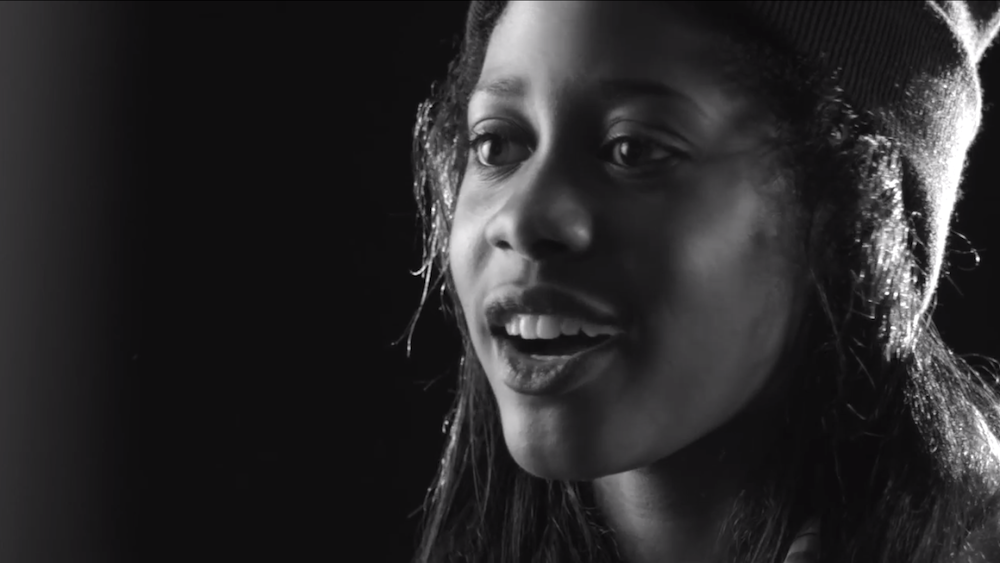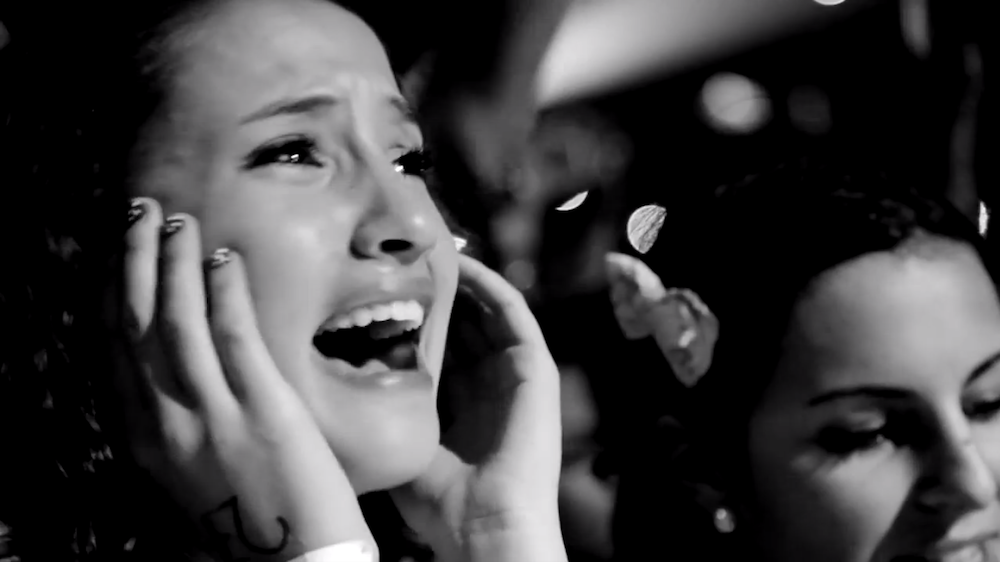Rihanna Shows Us How Artists Can Empower Each Other In 'Half Of Me' Documentary
/In Half Of Me, an inspiring documentary, Rihanna and her fans describe their bond and how they uplift each other by being truthful and generous with their creative selves. Watch her fans’ eyes light up as they talk about her and how deeply her presence has impacted their lives:

Being a great performing artist requires great talent and diligence, of which Rihanna certainly has no shortage. But beyond that, it also requires engaging the audience with a heartfelt connection. Singing is more than just hitting the right notes at the right time— although that is certainly a big part of it. The audience can feel whether a singer is singing from the heart or not. The singer needs to do more than deliver the song correctly— the song must be brought to life, and the audience must be captivated. I’ve watched a lot of very gifted and talented musicians who performed beautiful music and yet completely missed out on this:


The documentary title, Half Of Me, perfectly expresses this symbiosis between the artist and the audience. Rihanna attributes her success to her fans, and understands the importance of listening to their feedback. She demonstrates her gratitude to them by making the effort to reach out to them personally:
Everything that I’ve accomplished, I really owe it to my fans. It’s really them that made that happen.
She takes the trouble to go down from the stage and give audience members high fives. She recognizes the fans who frequent her concerts, and she smiles and waves at them. She makes eye contact to let them know she appreciates their support. These aren’t grand gestures, but, as in any personal relationship, the small gestures can mean a lot. Her fans feel her sincerity, and respond with loyalty and support for her and for each other, acting as one big family. They are inspired by how Rihanna achieved success while retaining her own independent identity:
It makes you think anything’s possible. This girl from an island in Barbados. And look where she’s now. She had a dream as well. And she worked towards it. And it just proves anything is possible if you put your mind to it. I can do it as well… She’s just a regular person, she’s just like me, we’re all the same as her, she’s so much like us.
I may not be a fan of Rihanna’s music, but I’m definitely a big fan of how she, as a creative person, is empowering other creative people. That’s beautiful and special, because artists can be very competitive. As an artist, I struggle with that myself. It is an irrational competitiveness that stems from the fear that another artist’s success means less success for me, or that there is not enough space in the world “for both of us”. The truth is, another artist’s success is just proof that I, too, can be successful. There’s plenty of room for everyone, and everyone has something meaningful to contribute. Ronald Carter writes in Language and Creativity: the Art of Common Talk:
Creativity is not simply a property of exceptional people but an exceptional property of all people.
There are already too many critics and naysayers out there who will put down our creative dreams. We creatives should look out for one another and support each other. I’m happy to watch how Rihanna connects with her fans and encourages her fellow creatives in their craft. Hopefully, she will continue to touch many other people in this way.
Celebrities have so much power— I can’t imagine being in their shoes. I admire the ones who seem to wield their power wisely, but I still worry about such a celebrity-centered culture. I question the messages they send in their work, and I’m wary of the role they play in consumerism. I recognize their talents, their hard work, and their contribution to creative culture. I know they are only human just like I am, and it is too easy to judge them from my comfortable vantage point. I don’t have a million pairs of eyes watching my every move, either demanding me to put on a spectacular show or waiting for me to make a mistake. I can only imagine the stress they go through every day as public figures with public lives. They are placed on pedestals and they influence millions of fans. Every little thing they do is given so much time and attention. It means that when a celebrity does something inspiring, the effects can be amazingly far-reaching. On the other hand, the overwhelming media attention given to celebrities can displace more pressing issues that get crowded out of social consciousness. Sometimes, this pressure is too much to bear and these celebrities become prone to self-destructive behavior— which provokes a paparazzi feeding frenzy and leads to a downward spiral. I am always saddened by news of “fallen stars”, the casualties of a “manufactured culture”.
The popularity of tabloids and gossip rags show me that most people are much more interested in juicy scandals than in advocacy news. Although, to be fair, it also has to do with format and communication skills— there’s a popular science news Facebook page which, with its witty blurbs and eye-catching images, has nearly seven million followers. If I complain that people pay too much attention to irrelevant things, then it’s also my responsibility to try to change that by writing well to effectively sharing more inspiring material, and by being more careful about what I myself pay attention to. There’s so much more to human culture than celebrity worship and gossip.
Aleister Crowley, who was something of a celebrity himself, preached about the importance of feeding the mind properly:
The first discipline of education must therefore be to refuse resolutely to feed the mind with canned chatter.
Terence McKenna also expressed his frustration with manufactured culture, imploring us to give our own creative ideas more space:
>We have to create culture, don’t watch TV, don’t read magazines, don’t even listen to NPR. Create your own roadshow… and if you’re worrying about Michael Jackson or Bill Clinton or somebody else, then you are disempowered, you’re giving it all away to icons, icons which are maintained by an electronic media so that you want to dress like X or have lips like Y… That is all cultural diversion, and what is real is you and your friends and your associations, your highs, your orgasms, your hopes, your plans, your fears. And we are told ‘no’, we’re unimportant, we’re peripheral.
I don’t think we need to completely stop watching TV or reading magazines, but I do agree that we need to focus more on creating and engaging culture, rather than on just being consumers. In The Artist’s Way, a book for unblocking creativity, Julia Cameron encourages artists to set aside a whole day for “information fasting”— no reading, no news— just some time alone with your own thoughts. I believe that’s a healthy habit that gives us space to listen to our own voice.
Yesterday I came across this lovely illustration by Maurice Sendak in collaboration with Ruth Krauss, about creating and sharing dreams. It reminded me that when you light someone else’s candle, you’ll lose nothing, and there will be two lights instead of just one. As artists, let’s empower each other and stimulate a culture of creativity. ~ Feanne
